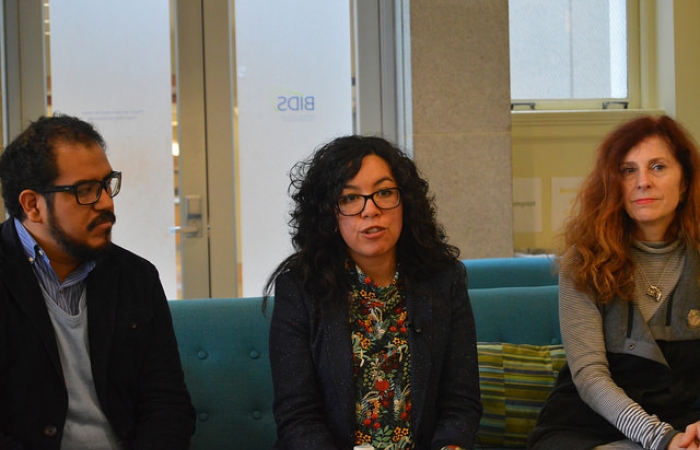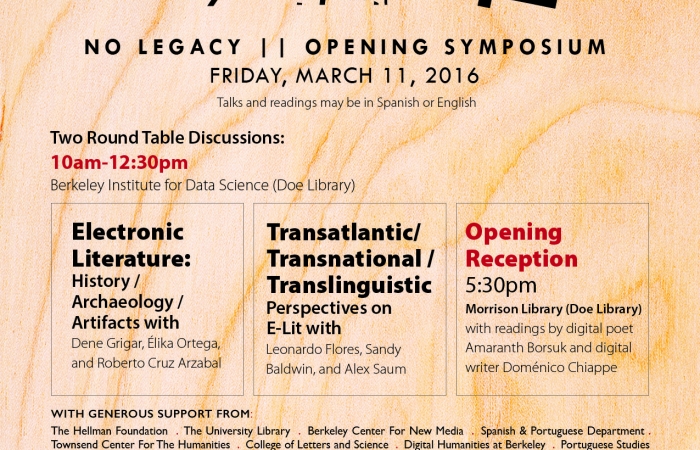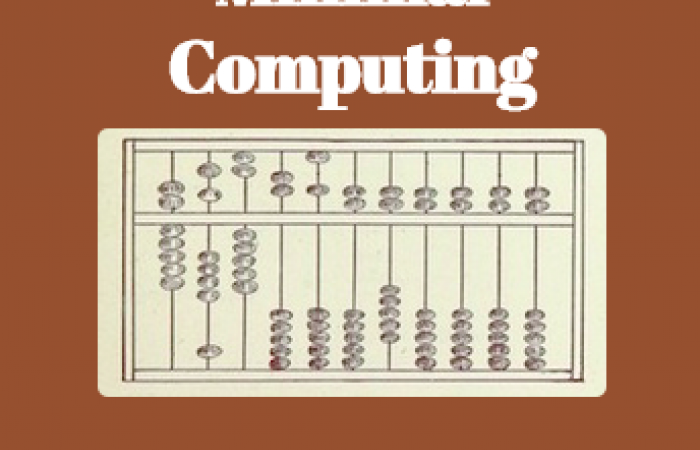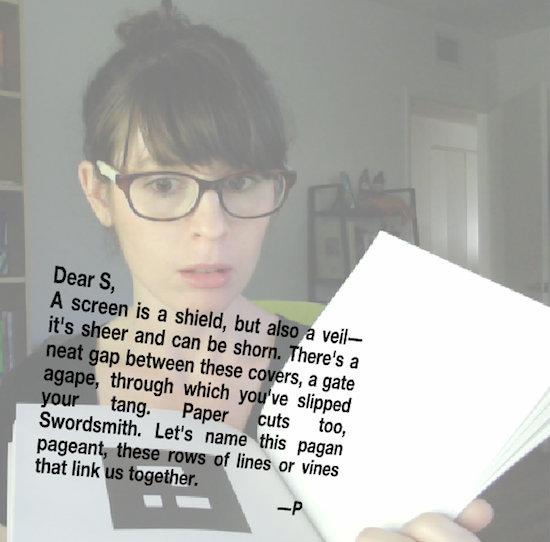No Legacy || Literatura Electrónica Opening Symposium Revisited
On March 11th, an interdisciplinary community gathered at Doe Library to celebrate the opening of No Legacy || Literatura Electrónica The exhibit, co-curated by DH Fellow Alex Saum-Pascual, Assistant Professor of Spanish, and Élika Ortega, Postdoctoral Researcher at the Institute for Digital Research in the Humanities at the University of Kansas, examines electronic literature’s roots in Spanish and Portuguese experimental fiction.![]()




 This summer, Alex Saum-Pascual, DH Fellow and Assistant Professor of Spanish and Portuguese, is working on bringing the electronic literature community to campus.
This summer, Alex Saum-Pascual, DH Fellow and Assistant Professor of Spanish and Portuguese, is working on bringing the electronic literature community to campus.